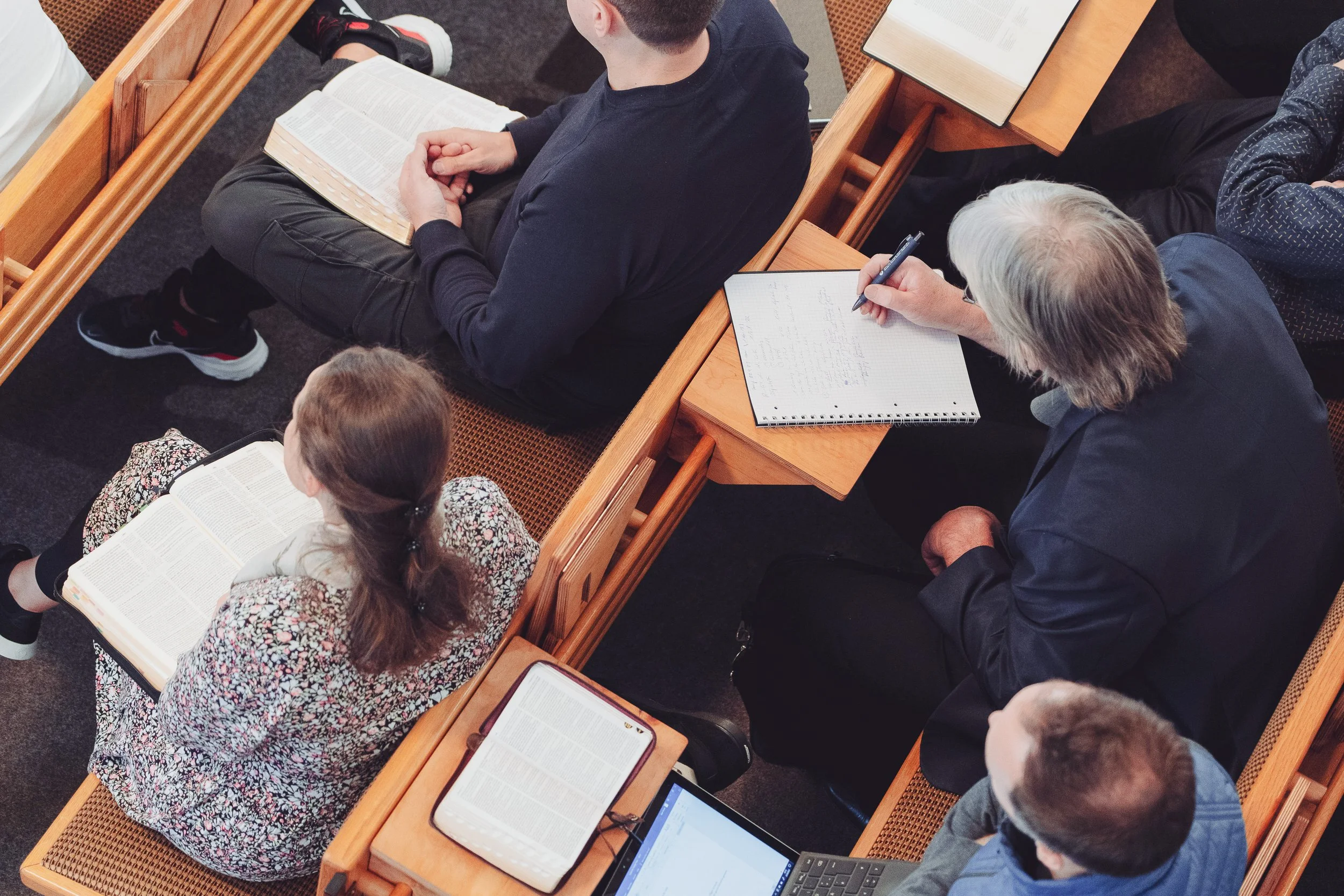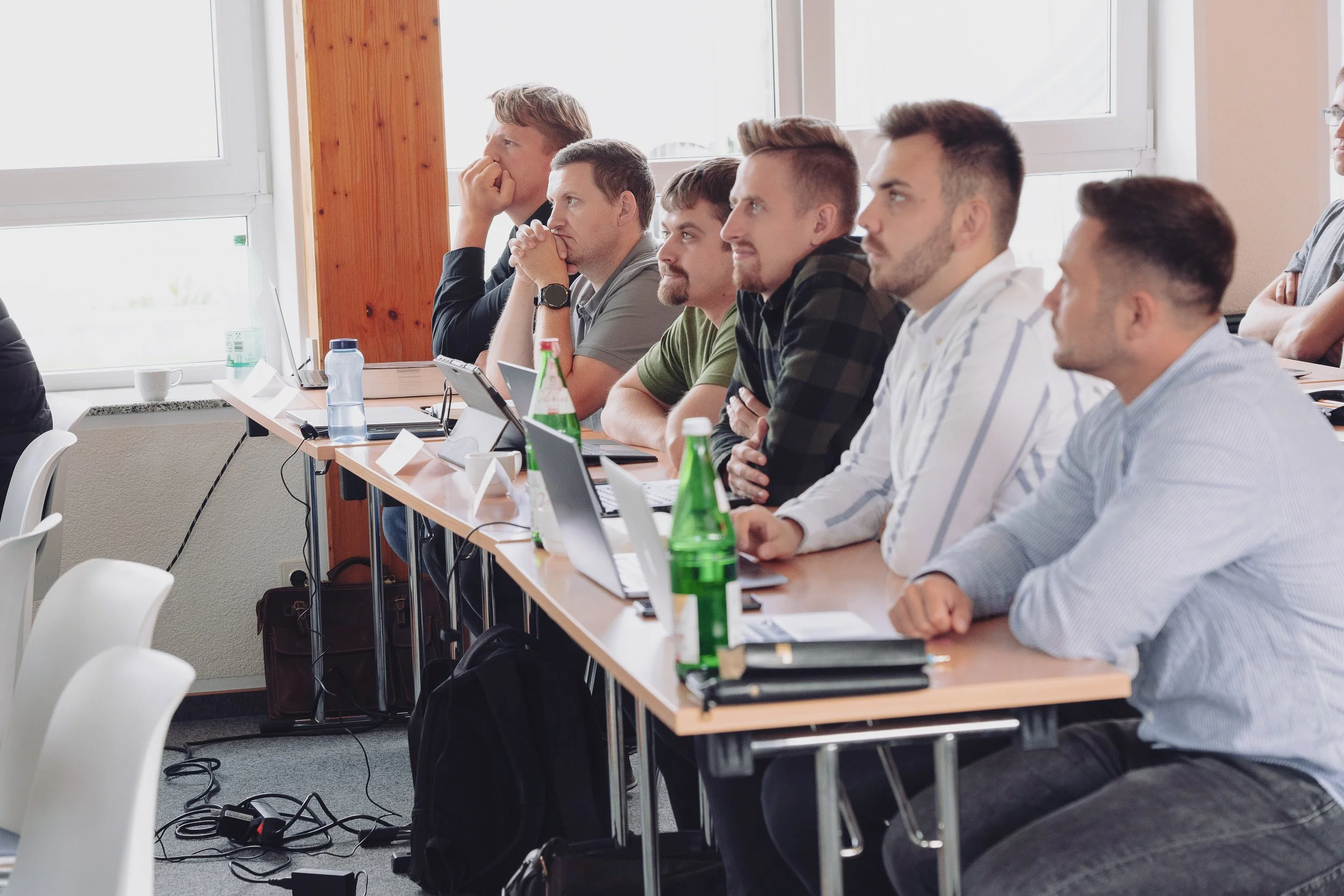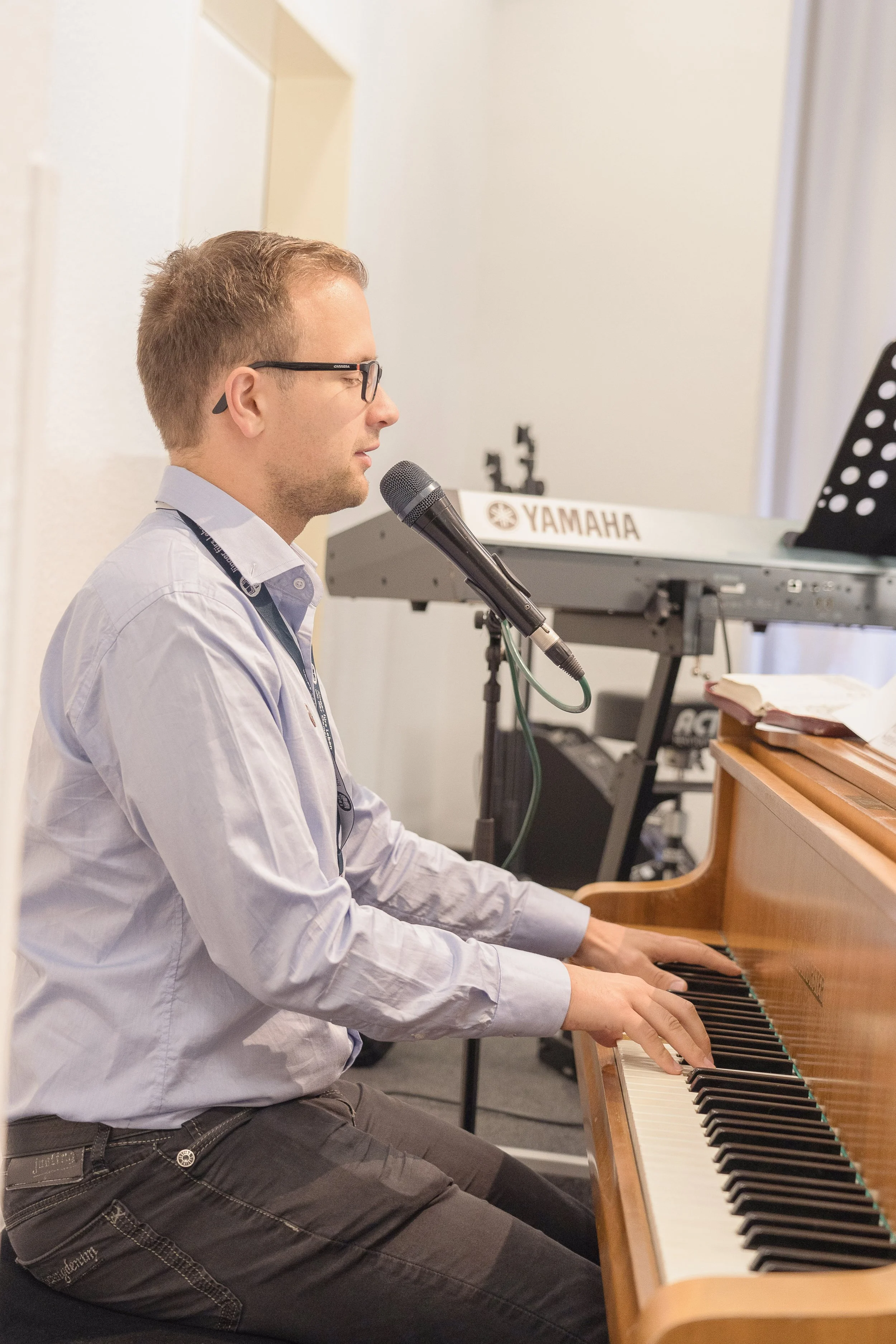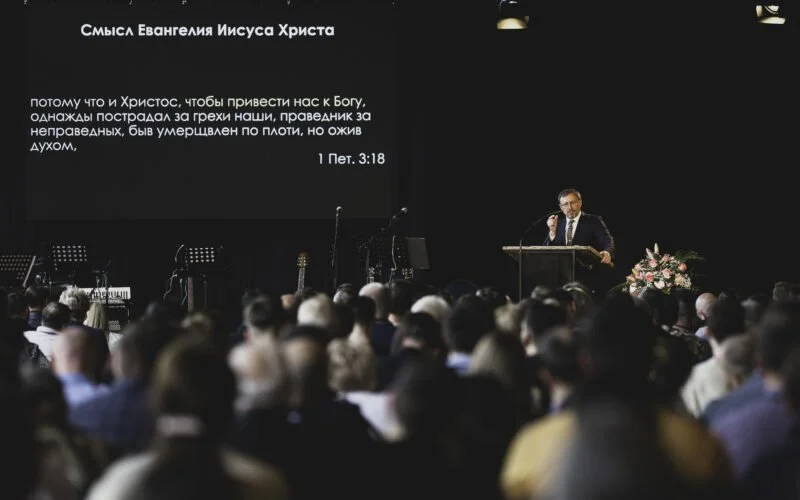Germany and Switzerland
European Bible Training Center
MEMBER SCHOOL
Number of Graduates: 3228 | Churches Impacted: 470
Our goal is to equip disciples for life in order to serve Christ’s church.
MISSION
KEY DETAILS ON EUROPEAN BIBLE TRAINING CENTER
About
-
Ultimately, our goal—according to Matthew 28:19–20 and Colossians 1:27–29—is to equip disciples for life to serve the church of Christ in all German-speaking countries, Europe, and the rest of the world. We exist because many churches lack faithful shepherds and sound teaching, and we aim to bring back faithful exposition, powerful preaching, and the practical application of God’s Word to a spiritually dry and theologically drifting generation—so that Christ’s church may be strengthened and the gospel may advance.
-
Train bi-vocational church leaders through local church-based education
We offer accessible, part-time theological training for men who work full-time, with classes held in local churches and rooted in the life of the church.
Promote expository preaching through conferences and hands-on training
Through events like the Shepherd’s Conference and Bible Exposition Conference, we model and teach faithful, text-driven preaching.
Mentor future pastors and church planters through internships and practical ministry
We equip men for ministry through internships and workshops, offering guidance from experienced church leaders and planters.
Provide sound theological resources through a robust publishing ministry
Our publishing arm produces biblical literature and training materials, including over 110 books and key sermon translations from John MacArthur in partnership with Grace To You.
Confront theological drift in Europe by restoring confidence in God’s Word
We respond to spiritual decline by upholding the authority, inerrancy, and sufficiency of Scripture as the foundation for all ministry.
-
Our training model is specifically designed to accommodate students who balance ministry or church involvement with other professional responsibilities. We offer a bi-vocational (part-time) Bible school that combines distance learning with in-person teaching to provide flexible yet rigorous theological education.
Campus:
We currently have three campuses in Germany: Berlin, Soest, and Oberberg; one campus in Zurich, Switzerland; and an online campus.
Format and Schedule:
Classes are held once a month from September through June, typically on a Friday and Saturday. For foundational courses like Bible Survey and Profitable Bible Study, sessions begin on Friday evening and conclude late Saturday afternoon. More advanced courses, such as Expository Preaching and Biblical Counseling, begin on Friday morning and run until late Saturday afternoon.
Self-Study and Online Components:
Between monthly in-person weekends, students engage in self-study according to their own schedules. Coursework includes reading, reflection, and assignments submitted via our online learning platform. The study load varies by program—ranging from about 9 hours per week for Bible Survey to around 12 hours per week for programs like Music Ministry, Biblical Counseling, and Expository Preaching.
Platforms Used:
We utilize a dedicated online learning platform for coursework submission, communication, and resource distribution. This hybrid model allows students to benefit from face-to-face interaction and the flexibility of distance learning.
Academic Components:
Our programs integrate key practical elements such as preaching labs, assignments designed to deepen theological understanding, and applied ministry projects. Students regularly apply their learning by actively serving and preaching in their localchurches throughout their training.
Discipleship:
Discipleship is a vital part of our approach. Students are encouraged to seek guidance from local pastors or ministry leaders who support their spiritual growth and practical ministry skills through ongoing discipleship.
Graduation Requirements:
To graduate, students must complete all coursework, practical ministry assignments, and—where applicable—preaching requirements. Graduates from advanced programs are equipped not only with theological knowledge but also with practical ministry experience which is required for leadership an ministry in their local churches.
Training
-
Our school offers a range of degree and certificate programs designed to equip students for various forms of ministry and service within the church. These programs vary in length and focus, serving men and women at different stages of their ministry journey.
Bible Survey
A 1-year program providing a comprehensive overview of the entire Bible and each individual Bible book. Designed for both men and women, this course is also available online, making it accessible for a wide audience seeking foundational biblical knowledge and is used for church based bible training by 40+ churches.
Profitable Bible Study
A one-year program that emphasizes in-depth study of biblical texts, focusing on understanding the message, intent, and practical application of Scripture. Suitable for men and women wanting to deepen their personal and ministry-related Bible study skills.
Music Ministry
Offered as a one- or two-year program, this course helps musicians apply biblical principles to their practical music ministry. It also welcomes non-musicians who desire to learn the biblical foundations of music in worship and ministry.
Biblical Counseling
A two-year program providing biblical guidance for discipleship and practical counseling. It is aimed at men and women actively involved in church ministry who want to develop skills to offer effective biblical care and support.
Expository Preaching
A two-year program focused on preparing men for preaching ministries and pastoral leadership roles within the church. This program trains students in delivering clear, faithful, and biblically grounded sermons.
Master of Divinity (M.Div.)
A comprehensive six-year program designed to equip proven men for pastoral ministry. The M.Div. focuses on diligent study, teaching, and preaching of God’s Word, preparing graduates for significant leadership roles in the church.
-
Since its founding in 2001 by Christian Andresen and under the leadership of John MacArthur, the EBTC has grown continually. The initial three-year program began with 18 students, and although only three graduated from the first cohort, it set a firm foundation. In 2004, the Bible Survey program started with 16 students and has since had over 1500 graduates, reflecting its enduring value.
The two-year Expository Preaching program launched in 2005 with 19 students and has now produced over 200 graduates, equipping students for expository preaching and pastoral ministries. The Biblical Counseling program has trained over 300 graduates to provide theologically-faithful biblical counseling.
By 2006 the EBTC had expanded to Switzerland with a campus in Zurich, where 17 students enrolled in Bible Survey. The "Profitable Bible Study“ program has also become a fundamental part of the curriculum, with over 700 graduates who are now actively applying the principles of correct biblical interpretation in their ministries.
The EBTC also has a master's level course in divinity, underscoring its commitment to advanced theological education and academic rigor. The school currently has approximately 30 volunteer and staff teachers ensuring quality instruction and mentoring throughout its programs.
In addition to the formal studies, the EBTC reaches even younger generations with the German translation of the Generations of Grace Sunday School curriculum. Thousands of Sunday School teachers and families use the material to evangelize and train their children. EBTC’s publishing branch expands the school’s influence and equip its students with over 100 books published in German, including John MacArthur’s Biblical Doctrine.
From the beginning of the EBTC until now, nothing has changed our goal of equipping disciples for life in order to serve Christ’s church.
If you would like to learn more about the history of the EBTC, you can find further information at ebtc.org/history
-
We aim to reach and train even more students at all levels of Christian maturity and across all German-speaking countries and throughout Europe, both in-person and online. We plan to expand our English offerings with further Bible Survey and Profitable Bible Study courses, online and in the classroom. We mean to complete our goal of providing a textually-faithful Bible translation through the EsraBibel project and thereby contribute to our goal to equip disciples for life to serve the church of Christ.
If you would like to learn more about the EBTC in general, you can find further information at ebtc.org/en
Context
-
Population: 84,119,100 (2024 est.)
Ethnic Groups: German 85.4%, Turkish 1.8%, Ukrainian 1.4%, Syrian 1.1%, Romanian 1%, Poland 1%, other/stateless/unspecified 8.3% (2022 est.)
Note: Data represent population by nationalityLanguages: German (official); note - Danish, Frisian, Sorbian, and Romani are official minority languages; Low German, Danish, North Frisian, Sater Frisian, Lower Sorbian, Upper Sorbian, and Romani are recognized as regional languages
Religions: Roman Catholic 24.8%, Protestant 22.6%, Muslim 3.7%, other 5.1%, none 43.8% (2022 est.)
Population of Major Urban Areas: Berlin 3.574 million, Hamburg 1.788 million, Munich 1.576 million, Cologne 1.144 million, Frankfurt 796,000 (2023)
Refugees and Internally Displaced Persons
Refugees (Country of Origin): 664,238 (Syria), 183,631 (Afghanistan), 151,254 (Iraq), 64,496 (Eritrea), 47,658 (Iran), 38,755 (Turkey), 32,155 (Somalia), 13,334 (Russia), 12,155 (Nigeria), 9,250 (Pakistan), 6,257 (Serbia and Kosovo), 6,912 (Ethiopia), 5,532 (Azerbaijan) (mid-year 2022); 1,139,690 (Ukraine) (as of 3 February 2024)
Stateless Persons: 28,941 (2022)Stats from CIA.gov
-
The 20th century brought devastation and havoc upon Germany with two world wars. In 1949, the Cold War split the nation into democratic West Germany and communist East Germany. Since its reunification in 1990 after the Soviet Union’s decline, Germany has invested heavily in rebuilding its economy to match western standards of productivity and wages. It adopted the euro in 2002 and has emerged to become a leading member of the EU and NATO. Germany now the largest economy and the second-highest population in Europe. Once the heartland of the Reformation, Germany is becoming an increasingly secular nation. Rising levels of immigration in recent years have affected the country’s religious demographic as well.
Compiled from CIA.gov, Operation World, and Joshua Project
HOW TO PARTNER
Support European Bible Training Center
LEARN MORE












